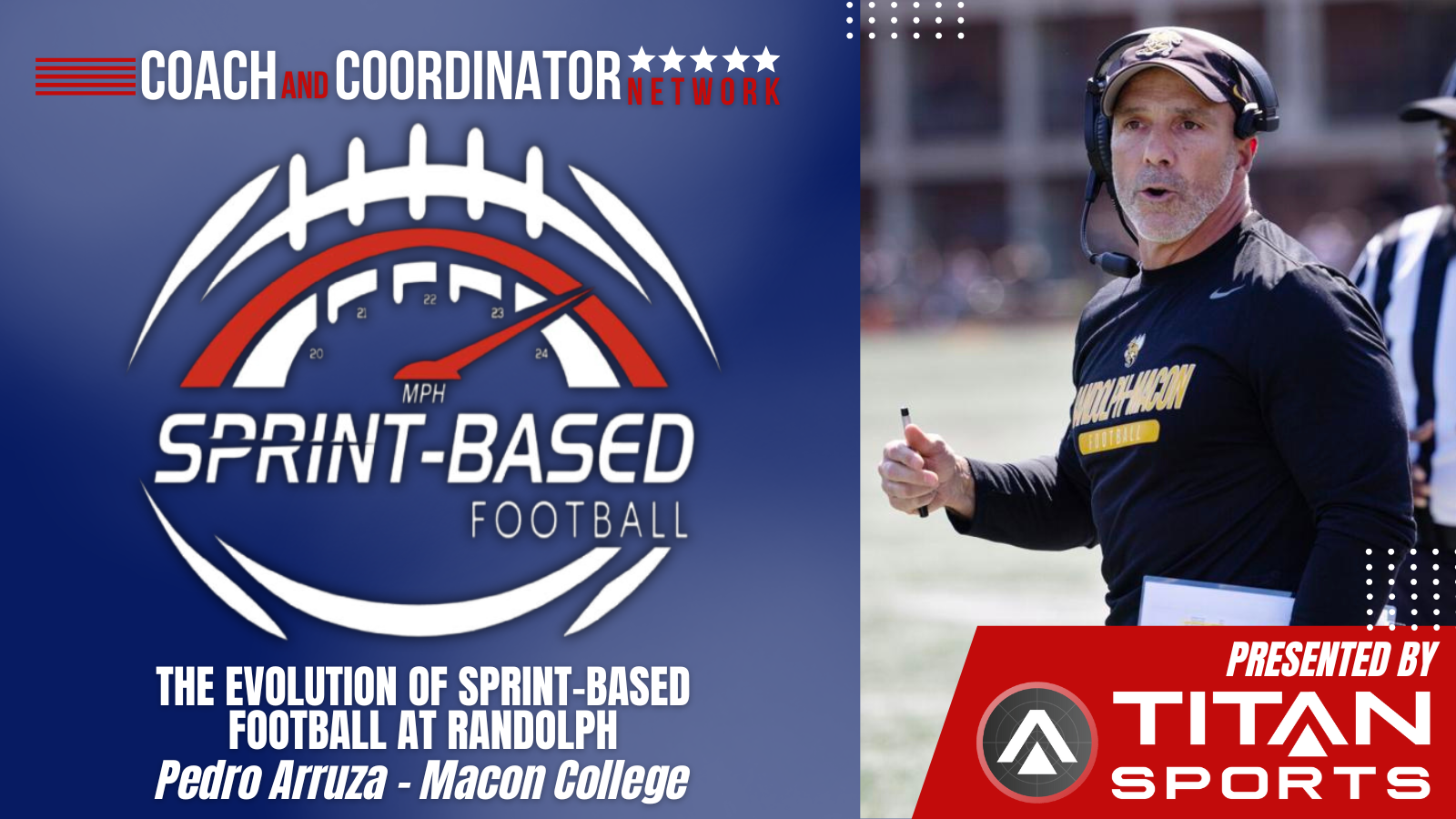
In this episode of the Sprint Based Football Podcast presented by Titans Sensors, host Tony Holler speaks with Pedro Arruza, head coach at Randolph-Macon College, about adopting sprint-based football principles. Arruza discusses how the pandemic led to a shift toward low-volume, high-impact practices that prioritize player health and performance. They explore the challenges of changing traditional coaching mindsets, the importance of injury prevention, and strategies for building a positive team culture that attracts recruits. Arruza highlights the need for player responsibility and a fun, competitive training environment. The conversation also covers mental and physical health, effective communication, innovative practice methods, sprint training, recovery, and the role of sleep and mental health in performance.
Chapters:
- Introduction to Sprint Based Football at Randolph-Macon College
- Evolution of Coaching Philosophy and Practices
- Adapting to Change: The Impact of the Pandemic
- Revolutionizing Practice: Low Volume, High Impact
- Injury Prevention and Health Management
- Recruitment Strategies and Team Culture
- The Importance of Mindset and Player Responsibility
- Building a Competitive Edge in College Football
- The Importance of Mental and Physical Health in Sports
- Building Trust and Communication with Players
- Adapting Training Based on Player Feedback
- Rethinking Practice: Quality Over Quantity
- Innovative Training Methods: Less Tackling, More Speed
- The Science of Sprinting and Recovery
- Tailoring Training to Individual Needs
- The Counterintuitive Approach to Conditioning
- Organizing Effective Practices for Game Readiness
- The Role of Sleep and Mental Health in Performance


